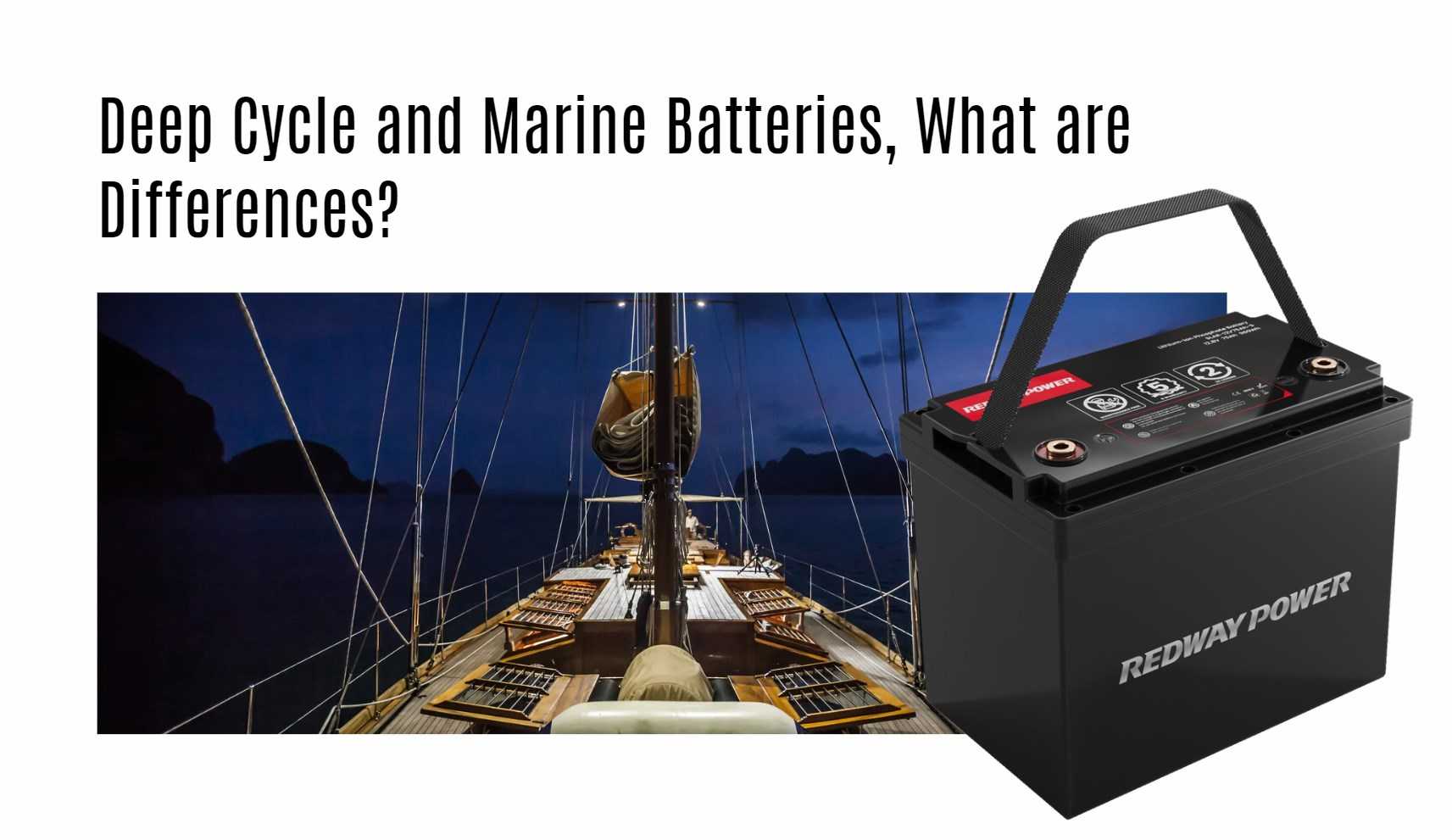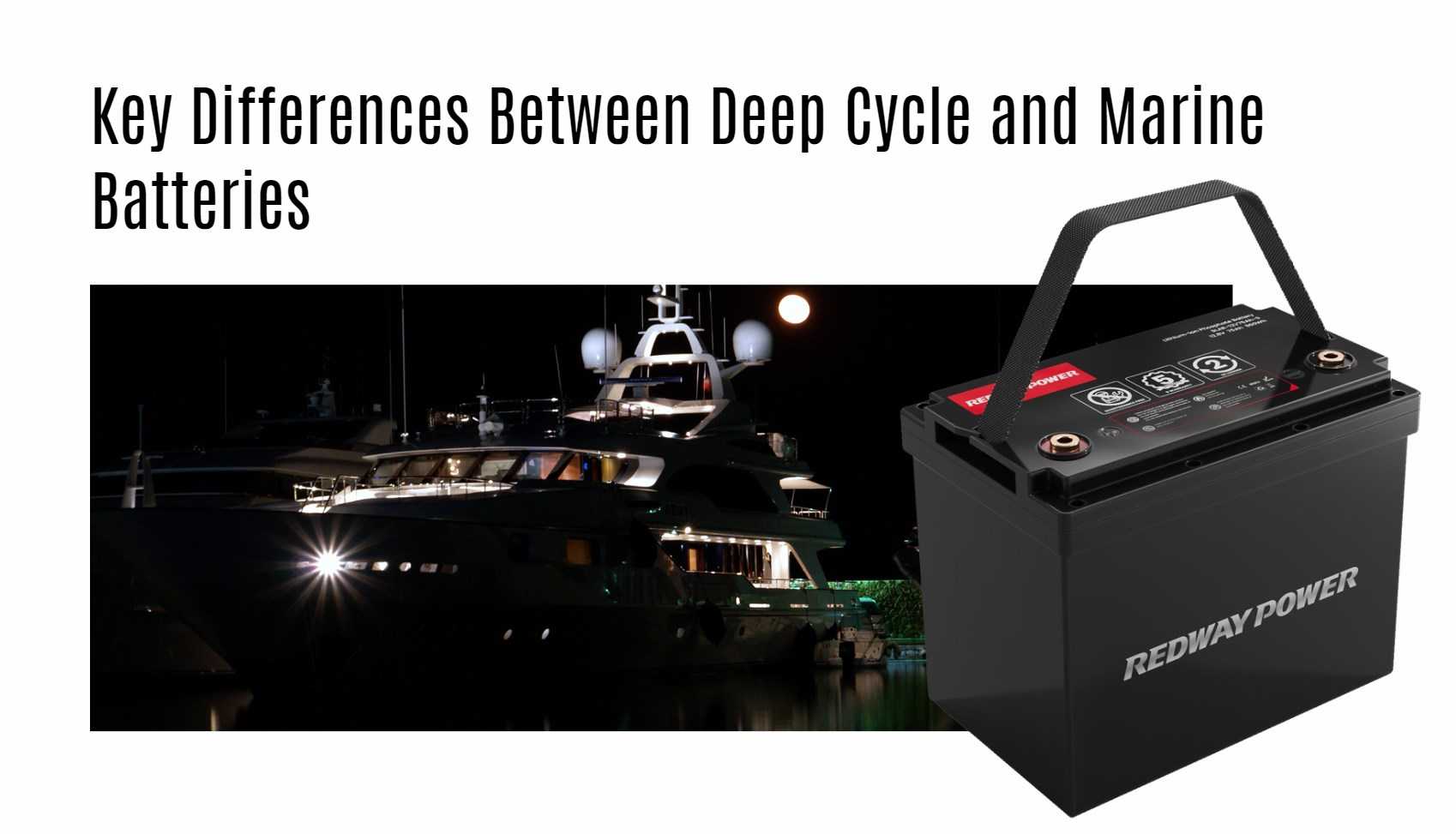Deep cycle batteries provide sustained power for extended periods, suited for off-grid systems. Marine batteries offer high bursts of energy for engine starts on boats. Deep cycle batteries have thicker plates, while marine batteries prioritize high cranking amps. Choose based on your usage needs: deep cycle for prolonged power, marine for short bursts. Maintenance includes checking water levels and tight connections.
Understanding Deep Cycle and Marine Batteries
Deep Cycle Batteries
Deep cycle batteries are engineered to deliver a consistent amount of power over an extended duration, making them well-suited for applications that require sustained energy output. They find common use in golf carts, RVs, and other vehicles where a prolonged supply of electricity is necessary without access to shore power. One distinct feature of deep cycle batteries is their thicker plates compared to starting batteries, enabling them to discharge more deeply while maintaining their capacity.
Marine Batteries
Marine batteries are specifically designed for use on boats and watercraft. These batteries must endure harsh marine environments while providing reliable power to start engines and operate electrical equipment like lights or radios. Marine batteries come in two primary types: starting and deep cycle, each serving a specific purpose.
- Starting Marine Batteries: These batteries provide high cranking amps (CCA) for short bursts of energy required to quickly start boat engines.
- Deep Cycle Marine Batteries: Designed to offer longer-lasting power that can be discharged at lower levels before needing to be recharged.
Before choosing between a deep-cycle battery or a marine one, it’s essential to assess your specific needs to determine the most suitable option for your application.
Key Differences Between Deep Cycle and Marine Batteries
Deep cycle and marine batteries, both used to power boats, have distinct differences:
- Usage: Deep cycle batteries provide a consistent power supply over an extended period, ideal for being discharged and recharged repeatedly without harm. In contrast, marine batteries are intended for short bursts of high-power energy needed for engine starts or running electrical systems.
- Construction: Deep cycle batteries have thicker plates and more lead content, making them resilient to repeated deep discharges. Conversely, marine batteries often have thinner plates and less lead content to maximize power output.
Choosing the Right Battery for Your Needs
Choosing the appropriate battery type can be overwhelming if you’re unfamiliar with the differences between deep cycle and marine batteries. Here’s a simplified guide to assist you:
- Marine Battery: Opt for a marine battery if you need to power accessories like GPS units, radios, or lights for shorter trips. Marine batteries provide high bursts of energy over short periods and typically have thinner plates.
- Deep Cycle Battery: Choose a deep cycle battery if you require power for extended periods, such as running appliances or electronics overnight or during long voyages. Deep cycle batteries deliver sustained low-level power over longer durations without frequent recharging.
Ultimately, the decision boils down to assessing your equipment’s usage demands and recharging frequency. Consider factors like cost and maintenance requirements when selecting the battery type that best suits your situation.
Battery Maintenance Tips
Proper maintenance is essential for prolonging your battery’s lifespan and ensuring optimal performance. Follow these tips to maintain your deep cycle or marine battery:
- Regularly check water levels and top up with distilled water if needed.
- Ensure all connections are tight and free from corrosion.
- Avoid overcharging the battery; charge only when necessary using a suitable charger.
- Store the battery in a cool, dry place to prevent extreme temperatures.
If you won’t be using the battery for a while, fully charge it before storing to maintain its functionality.
Conclusion
In summary, both deep cycle and marine batteries are tailored for specific applications, with deep cycle batteries ideal for off-grid systems and marine batteries perfect for starting engines and providing power on boats. When selecting a battery, consider specifications, usage needs, and maintenance requirements. By following this guide, you can make an informed decision and choose a battery that will serve you well for years to come!
FAQs
Can I use a deep cycle battery for my boat?
- Deep Cycle Batteries: Deep cycle batteries are not recommended for continuous starting of a boat motor. They are designed for sustained power over a long period and are best suited for running electronics and accessories on a boat.
- Cranking Batteries: Cranking batteries are specifically designed to provide short bursts of energy to start the boat motor. They are ideal for the initial power needed to start the engine.
- Choosing the Right Battery: It is essential to use the right battery for the intended purpose to ensure optimal performance and longevity. Using a deep cycle battery for starting purposes can significantly decrease its lifespan.
What is the advantage of a deep cycle marine battery?
- Sustained Power: Deep cycle marine batteries provide sustained power over a long period, making them ideal for running electronics and accessories on a boat.
- Lower Discharge Percentage: Deep cycle batteries can be discharged to a lower percentage of their capacity without causing damage, allowing for longer-lasting power.
- Less Maintenance: Deep cycle marine batteries require less maintenance compared to standard batteries, reducing the need for constant monitoring and recharging.
- Longer Lifespan: Deep cycle batteries have a longer lifespan, providing reliable power for many years with proper care and usage.
- Versatility: Deep cycle marine batteries are versatile and can be used for various applications on a boat, from powering electronics to running trolling motors.
Do you need a special charger for a deep cycle marine battery?
-
Check the water level: Before charging, ensure that the water level is above the plates and below the acid fill level tube. Add distilled water if available, or use clear tap water if it’s otherwise clear and free of sediment. Never add acid.
-
Switch off automatic shut-off features: Some chargers have an automatic shut-off feature to turn off the charger when charging is complete. If the battery is severely discharged, it is recommended not to use the automatic feature initially.
-
Use a hydrometer: To ensure the battery is fully charged, use a hydrometer. A battery is considered fully charged if the specific gravity is 1.265 in all cells, with up to a 25% variance between cells.
-
Recharge as soon as possible: Recharge any discharged battery within 24 hours to prevent corrosion on the plates.
-
Avoid overcharging: Do not overcharge the battery, as this can burn the material on the plates and contribute to grid corrosion.
-
Charge at a slow rate: Charging the battery at a slow rate is best. Ideally, charge at 10% of the amp hour capacity of the battery. Consider using a trickle charger that slowly charges the battery when it’s not actively in use.
-
Load test: If you’re unsure about the condition of your deep cycle marine battery, take it to a battery shop and have it load tested.
What is the average lifespan of a deep cycle battery?
- Average Lifespan: Deep cycle batteries have an average lifespan of about 3-6 years.
- Factors Affecting Lifespan: The actual lifespan can vary depending on factors such as the type of battery, usage, maintenance, and climate.
- Charge/Discharge Cycles: Deep cycle batteries are typically rated for about 300-500 charge/discharge cycles.
- Climate Impact: Batteries in hotter climates may have a shorter lifespan compared to those in cooler climates.
- Maximizing Lifespan: Proper maintenance and monitoring of the battery can help maximize its lifespan and ensure optimal performance.
Can I trickle-charge a deep cycle battery?
- Trickle Charging: Trickle charging is a recommended method for maintaining and extending the life of a deep cycle battery.
- Voltage Maintenance: Trickle charging helps maintain the battery’s voltage when it’s not in use, ensuring it remains ready for use.
- Prevention of Deep Discharge: Trickle charging prevents deep discharge, which can lead to battery damage and reduced lifespan.
- Modern Vehicle Batteries: Most modern vehicle batteries have built-in smart chips that protect them from overcharging during trickle charging.
- Safety Measures: It is important to set the charger appropriately and monitor the battery’s voltage to prevent overcharging.
What happens if you charge a deep cycle battery with a regular charger?
Can a dead marine battery be recharged?
-
Identify the battery type: Marine batteries can be classified as starting batteries or deep-cycle batteries. Starting batteries provide a high burst of power to start the engine, while deep-cycle batteries provide a steady amount of power over a longer period for onboard electronics.
-
Choose the right charger: Select a charger that matches the battery’s voltage and ampere-hour rating. Using the wrong charger can damage the battery, so it’s important to ensure compatibility.
-
Prepare the battery: Before connecting the charger, disconnect the battery and clean the terminals. For wet-cell batteries, check the electrolyte level and add distilled water if needed.
-
Connect the charger correctly: Follow the manufacturer’s instructions to connect the charger’s positive and negative cables to the corresponding terminals on the battery. Double-check the connections to avoid short-circuiting.
-
Charge the battery in two stages: Start with a slow charge rate, allowing the battery to absorb the charge gradually. Then, increase the charging rate to a faster charge once the battery reaches 75-80% charge. Monitor the battery’s temperature during charging to prevent overheating.
-
Maintain the battery: After the battery is fully charged, disconnect the charger and store the battery in a cool, dry place. Regularly check the water level (for wet-cell batteries), clean the terminals, and ensure tight connections to prolong the battery’s lifespan.
Can you jumpstart a car with a deep cycle battery?
- Limitations of Deep Cycle Batteries: Jump-starting a car with a deep cycle battery may work for smaller vehicles but may not provide sufficient power for larger vehicles.
- Risks for Newer Models: Newer vehicles with advanced electronic systems are more vulnerable to damage from improper jump-starting methods.
- Importance of Proper Battery Rating: To ensure safe and effective jump-starting, it is recommended to use a properly rated starter battery or seek professional assistance.





